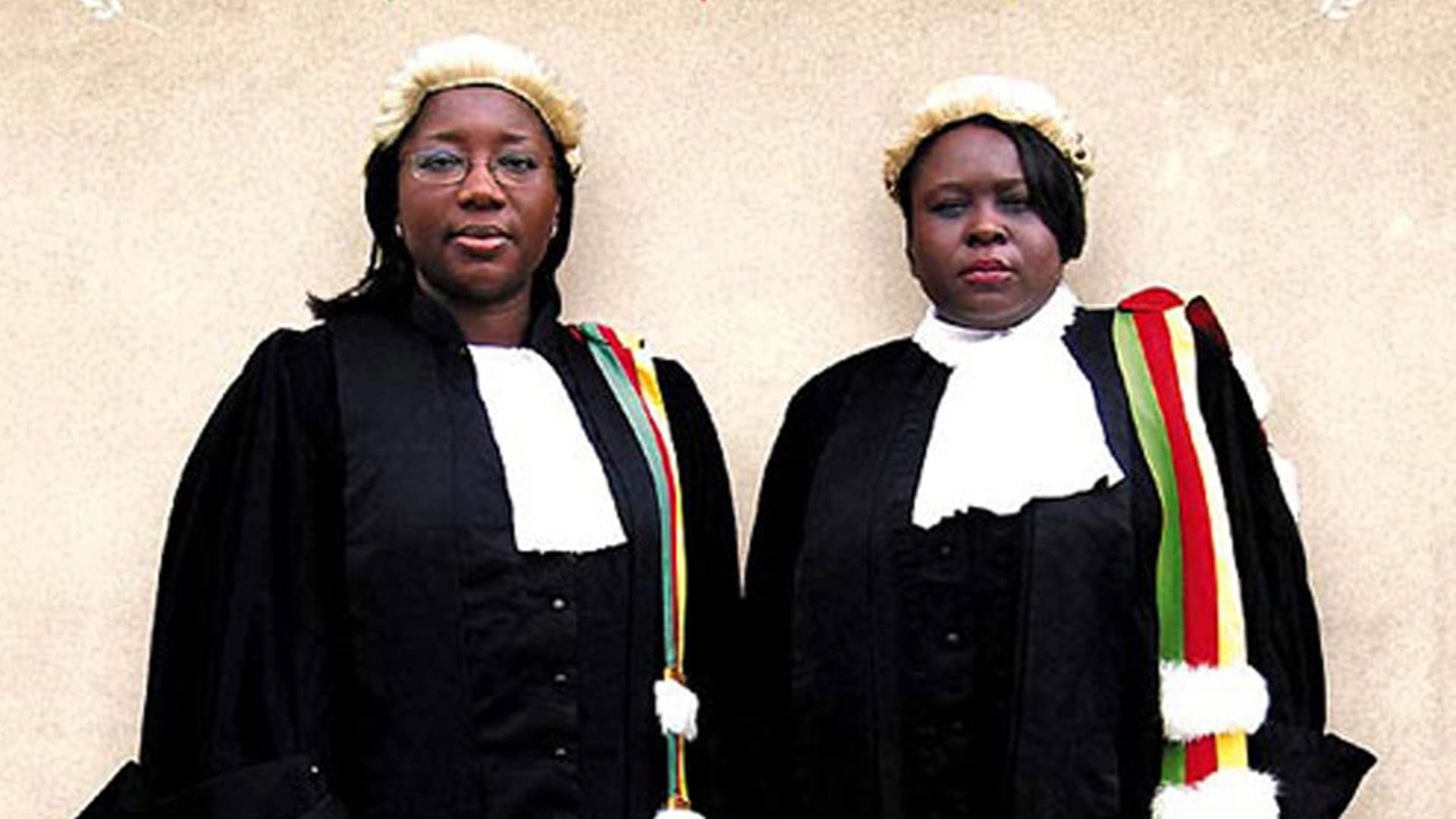By Chlotrudis Independent Film Society
Rating: 3.75 cats
Director: Florence Ayisi | Kim Longinotto

Country: cameroon, united_kingdom
Year: 2006
Running time: 72
IMDB: http://www.imdb.com/title/tt0474361/
Michael says: “To kick off the Spring 2006 edition of the Sunday Eye-Opener, we enjoyed a terrific and inspiring documentary
about the court system in Cameroon, Africa. This particular court tackles such cases as divorce, abuse and rape, and the two magistrates are women, an amazing accomplishment for the culture of this region. The directors, Florence Ayisi and Kin Longinotto, know they’ve got some riveting subject matter here, and they don’t get in its way. Their fly-on-the-wall filmmaking style eschews talking head interviews, reenactments, and stock footage, relying instead on being present and filming as history is made. In some African cultures, it is still acceptable for men to treat their wives as property; divorce is forbidden to a woman, and beating a child is standard discipline. While surely there have been disappointments in the work of these two amazing women, Longinotto and Ayisi focus on the triumphs, constructing an inspiring and uplifting film that shows how the law can be used to initiate social change. The women handling the court cases are human beings, playing with their children between depositions, and chastising defendants harshly.
“If there is one fault to this film, it is the lack of background information. After seeing the amazing accomplishments these women have made, who wouldn’t want to find out more about them? Their backgrounds? Their personal lives? Certainly at least hearing them talk about their work in their own words would have been thrilling. Still, the filmmakers choice to let these
women’s work stand for itself was a bold choice. There is one concession to this where a woman involved in a case to divorce her husband chats to the filmmakers with her friends about life and culture in Cameroon, and the way things are changing. This film is both uplifting and entertaining, with triumph of adversity, and fun, admirable personalities. Kudos for Women Make Movies to continue releasing such powerful films as this and past Chlotrudis Awards nominee, LOVE AND DIANE. 4 ½ cats”
Bruce says: “SISTERS IN LAW takes the viewer on a journey through the legal and judicial system of Cameroon as three stories of domestic violence are presented. At first is seems as though we are in for endless repetition – the men feel that the Muslim institution of marriage gives them the right to abuse and mistreat their women and the women traditionally have little or no recourse in a male-dominated society. Then the third story unfolds. A six year old girl has been beaten profusely by her aunt who uses the age old excuse that the beatings are merely for the purpose of correcting the child’s behavior. Reversing my first impressions, it turns out violence is not the sole province of the male population in Cameroon. Females are every bit as good at rationalizing their behavior as males. This story adds balance and perspective and keeps the film from being a male-bashing vehicle.
“Vera Ngassa and Beatrice Ntuba, members of the Women’s lawyer Association, are tough cookies. They are dedicated to bringing an end to domestic brutality and seeing that the law is strictly enforced. They do this in a pedantic sort of way that is more amusing than off-putting although their diatribes would not suffice were this a narrative feature. The abundant dialogue is not particularly interesting, partially because the crime victims are not articulate and the success of the film hangs on their participation. The male defendants are repetitive in their defense tactics and their verbiage.
“The beautiful palettes the Cameroonians employ to paint houses and weave fabrics, the face-to-face confrontation with social injustices…there is much to like about SISTERS IN LAW. The filmmakers, however, are not great storytellers. Little background is given to educate the viewer regarding how these cases – and the women who fight for them – fit into the general schemata of Cameroon culture. In general, the editing is poor. This is my first film from Cameroon. It made me want to see and learn more about this country. 3 cats”
